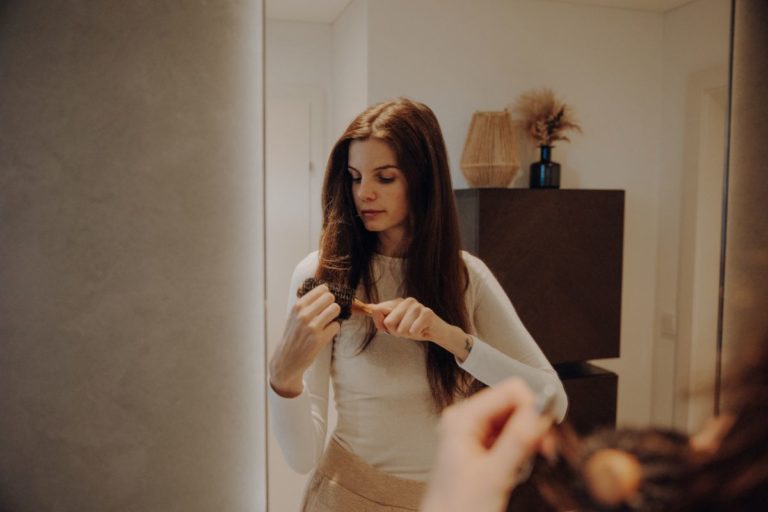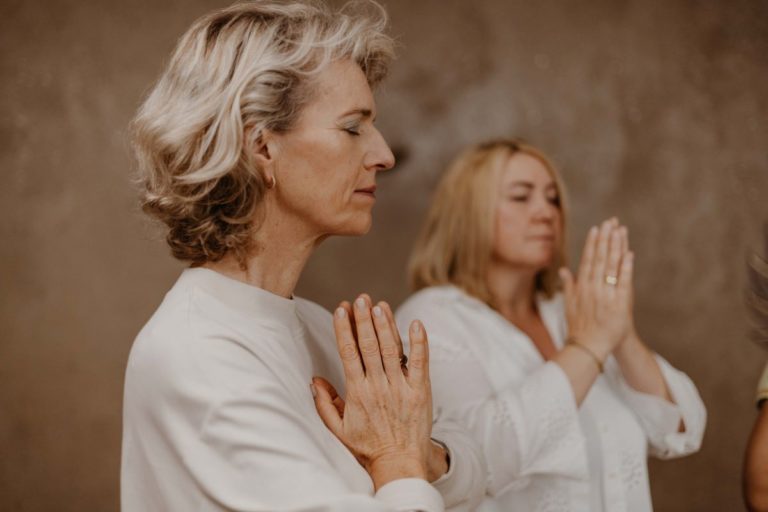Migraine attacks are usually unexpected and severe. Those affected suffer from the severe symptoms and also from the side effects of modern medicine. With a holistic approach and the inclusion of the three doshas, Ayurvedic teachings focus on natural treatment. You can find out how Ayurveda helps with migraines in this article.
Chronic migraine headaches from a medical perspective
Migraine is a neurological disorder and affects almost 14% of women and around 6% of men in Austria (1). Migraines are usually characterized by one-sided, pulsating or hammering pain. These can be moderate to severe and are exacerbated by physical activity.
Symptoms & triggers of migraines
Migraine is more than just a headache. They occur frequently and can severely restrict everyday life. The most common symptoms include
- Excessive headaches
- Sensitivity to light and noise
- Dizziness
A typical side effect is nausea, which occurs in almost 100% of cases. Temporary visual and sensory disturbances can occur as well as short-term paralysis.
It is now known that those affected are often genetically predisposed to suffer from migraine headaches. Genes alone do not trigger migraines, but certain circumstances can promote them.
Possible triggers of a migraine attack include
- Stress
- Fears
- Excitement
- Revision
- Time pressure
- Depressive moods
- Changes in the daily rhythm or rhythm of life
- Strong feelings
- Exceptionally high physical strain
- Hormonal changes
- Certain stimulants such as red wine or sparkling wine
Special migraine medication and anti-nausea and anti-vomiting medication can alleviate your symptoms. Non-steroidal painkillers can also help. In particularly severe cases, there is the option of migraine prophylaxis with medication or acupuncture.


Discover the European Ayurveda® Sleep Well Home Treatment now
This intensive Ayurveda program for at home can sustainably improve your sleep so that you can start the new day with full energy. Bring yourself back into balance - and get complaints under control in the long term.
Ayurvedic therapy options for migraine
Although there are options for treating migraines with medication, alternative forms of therapy are becoming increasingly popular. Moderate to severe pharmaceuticals usually make sufferers very tired. Where conventional medicine reaches its limits, Ayurvedic teachings come into play.
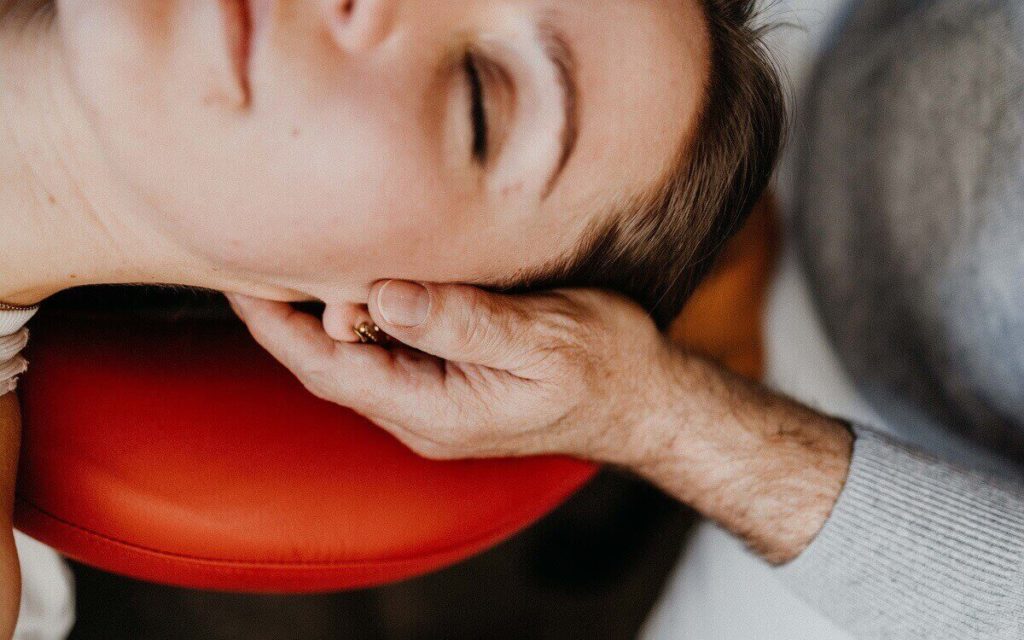

Migraine headaches (Ardhavabhedak) are already mentioned in ancient Ayurvedic writings and the treatment has proven to be successful to this day. In Ayurveda, the combination of different healing approaches is a focal point, which is considered to be particularly effective for chronic illnesses.
Causes and development of migraines in Ayurveda
Ayurveda differentiates between a total of eleven different types of pain in the head. The cause is basically an imbalance of your doshas, which manifests itself in various complaints. Ayurvedic teachings differentiate between external and internal influences as the cause of migraines.
External influences include:
- Lots of stress
- Changed sleep rhythm
- Sensory overload
- (Abrupt) weather change
- Some certain foods and luxury foods
- Insufficient food intake or malnutrition
The internal influences include:
- Too much serotonin in the brain
- Hormone fluctuations
- Too little fluid intake
- Mental stress and trauma
- Aggression and other strong emotions
With the holistic approach of Ayurveda, you are viewed as an individual and treated according to your needs. The aim is to provide lasting relief from your symptoms.
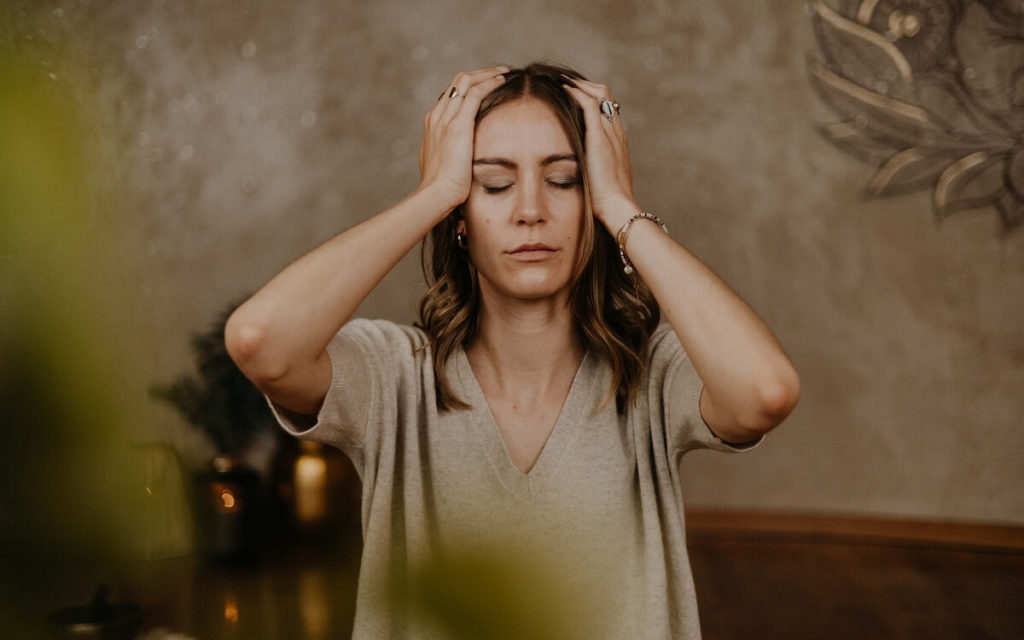

To date, the development of migraines has not been definitively clarified in conventional medicine, but a certain process can be explained on the basis of the doshas. Hyperactive nerve cells cause tension in the blood vessels with subsequent expansion. This releases substances that trigger inflammation and subsequently cause the respective pain and symptoms.
Symptoms of migraine depending on the doshas
Depending on the nature and distribution of your doshas , conclusions can be drawn about the causes of your migraine attacks.
The symptoms of migraine can be assigned to the Ayurvedic doshas as follows:
- Vata manifests itself through pain, a high sensitivity to noise, eye flickering and possible neurological deficits.
- Pitta is sensitive to light and is accompanied by heartburn and burning sensations of heat.
- Kapha is characterized by nausea, vomiting and a feeling of heaviness in the head and body.
In addition to the focus on psychological relief and treatment, the right diet is a central aspect in the treatment of migraines.
In an initial anamnesis consultation, your dosha type is determined and information on your diet and lifestyle is obtained. It is not uncommon for migraines to be caused by a combination of different factors . In this case, Ayurvedic medicine treats all three doshas in order to restore the balance.
5 tips against migraines in Ayurveda
There are various approaches in Ayurveda for the long-term reduction of your complaints, which always relate to your constitution. In addition to a balanced, ideally Ayurvedic diet and sufficient fluid intake, routines and Ayurvedic cures also help.
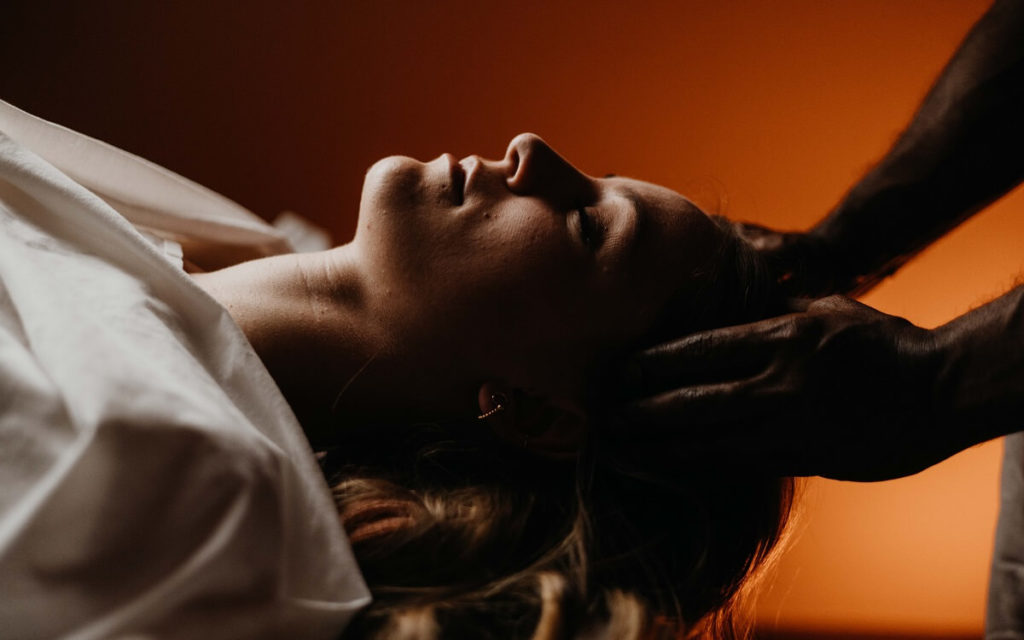

Tip #1: Change or adjust your diet
Ayurveda is all about the right diet. You can strengthen or weaken your doshas with specific foods. Depending on what you need to restore your balance.
You should avoid foods such as coffee, meat products, alcohol or hot spices if you are more susceptible to headaches. You should also eat very little food with a high histamine content. These include chocolate, citrus fruits, nuts, tomatoes and many types of cheese.
Also make sure that you drink enough fluids. It is best to drink warm water or unsweetened tea throughout the day. Certain Ayurvedic herbs and oils also have a positive effect. Licorice root tea, for example, has an antispasmodic effect and is therefore ideal for preventing headaches.
Tip #2: Take the stress out of everyday life
Stress and sensory overload are key causes of migraines. Especially in today's fast-paced world, it is important that you consciously take time to slow down.


Breathing exercises, relaxation techniques, yoga, meditation, exercise in the fresh air and avoiding temperature differences help with stress management.
Tip #3: Fend off an acute migraine attack
If you notice the onset of a migraine attack, it helps to pull both earlobes downwards and yawn vigorously. This reduces the pressure in the blood vessels and also reduces the pressure in your head. A light massage to the inner or outer corners of the eyes can also help.
Tip #4: Enjoy head and full body massages
Ayurvedic medicine has a whole repertoire of holistic rituals and treatments. Long strokes loosen tense muscles, relieve pain and calm the mind. Healing effects are produced with forehead oil infusions, which also help to relax the head.
Tip #5: Create more routine in everyday life
An Ayurvedic lifestyle is strongly oriented towards the rhythm of nature. A regulated daily routine with fixed routines is also part of this. Consistent bedtimes and regular meals are of great importance.
An Ayurvedic morning routine can also help to reduce stress and migraines. Also incorporate regular moments of relaxation to relax your body in between.
Read more


More energy in everyday life: how to increase your daily energy levels
If your everyday life challenges you, this can result in tiredness and fatigue. In this article, you can find out why this is and what you can do to combat persistent tiredness.



